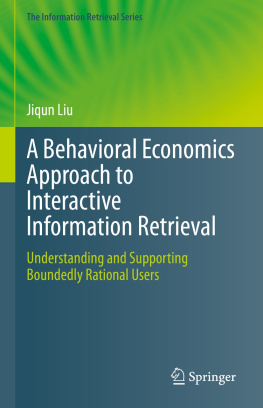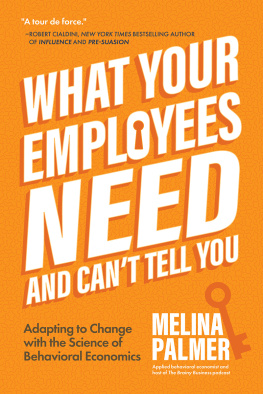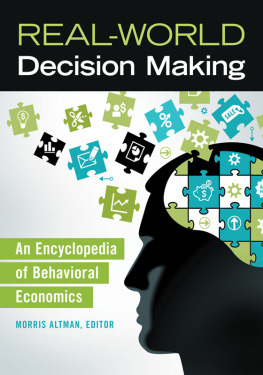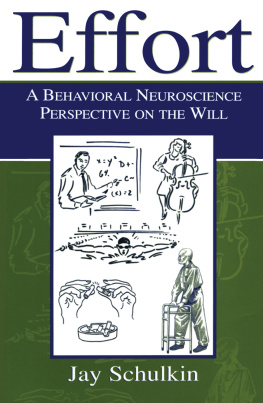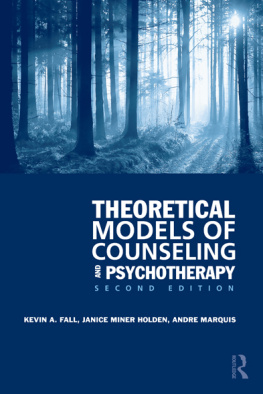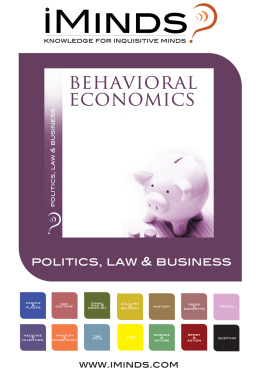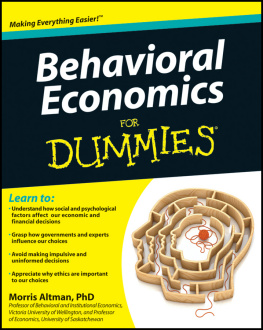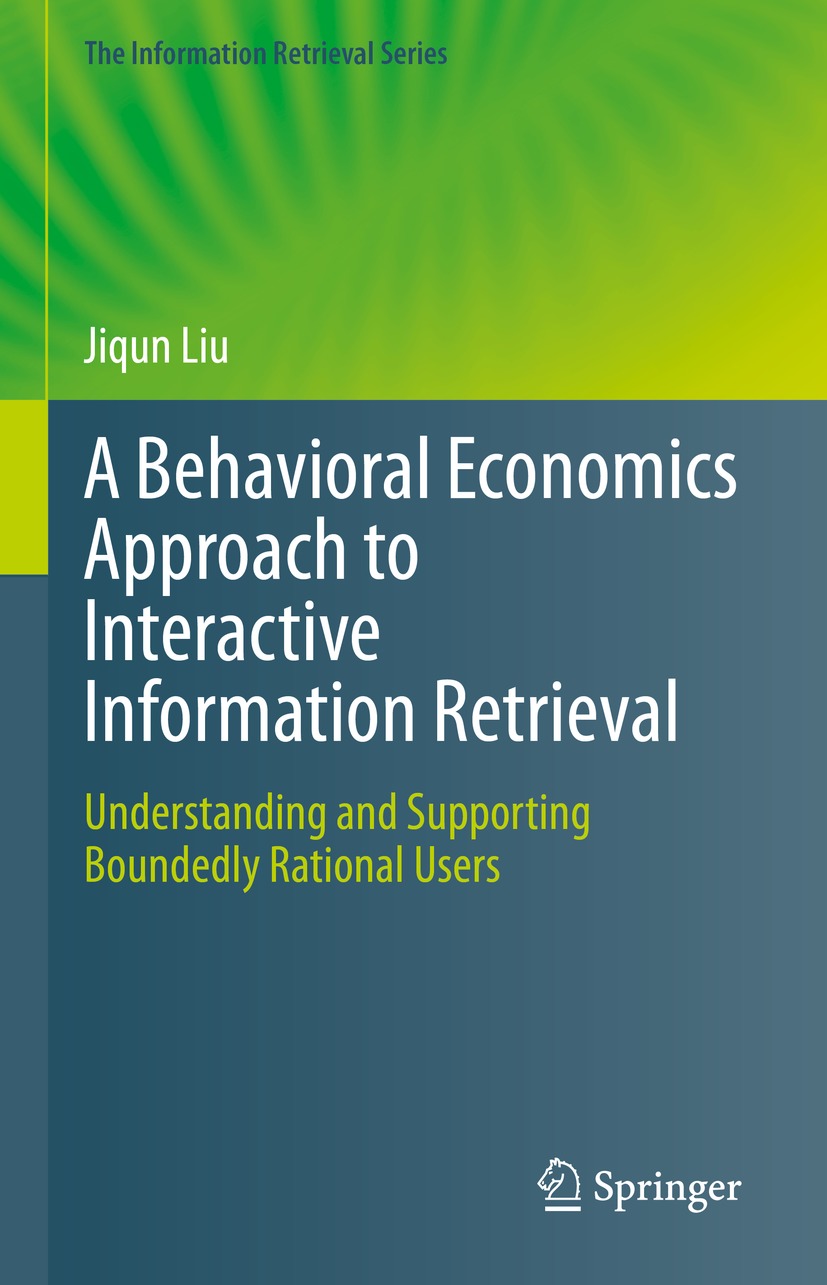Volume 48
The Information Retrieval Series
Series Editors
ChengXiang Zhai
University of Illinois, Urbana, IL, USA
Maarten de Rijke
University of Amsterdam, The Netherlands and Ahold Delhaize, Zaandam, The Netherlands
Editorial Board
Nicholas J. Belkin
Rutgers University, New Brunswick, NJ, USA
Charles Clarke
University of Waterloo, Waterloo, ON, Canada
Diane Kelly
University of Tennessee at Knoxville, Knoxville, TN, USA
Fabrizio Sebastiani
Consiglio Nazionale delle Ricerche, Pisa, Italy
Information Retrieval (IR) deals with access to and search in mostly unstructured information, in text, audio, and/or video, either from one large file or spread over separate and diverse sources, in static storage devices as well as on streaming data. It is part of both computer and information science, and uses techniques from e.g. mathematics, statistics, machine learning, database management, or computational linguistics. Information Retrieval is often at the core of networked applications, web-based data management, or large-scale data analysis.
The Information Retrieval Series presents monographs, edited collections, and advanced text books on topics of interest for researchers in academia and industry alike. Its focus is on the timely publication of state-of-the-art results at the forefront of research and on theoretical foundations necessary to develop a deeper understanding of methods and approaches.
This series is abstracted/indexed in EI Compendex and Scopus.
Jiqun Liu
A Behavioral Economics Approach to Interactive Information Retrieval
Understanding and Supporting Boundedly Rational Users

The Springer logo.
Jiqun Liu
School of Library and Information Studies, University of Oklahoma, Norman, OK, USA
ISSN 1871-7500 e-ISSN 2730-6836
The Information Retrieval Series
ISBN 978-3-031-23228-2 e-ISBN 978-3-031-23229-9
https://doi.org/10.1007/978-3-031-23229-9
The Editor(s) (if applicable) and The Author(s), under exclusive license to Springer Nature Switzerland AG 2023
This work is subject to copyright. All rights are solely and exclusively licensed by the Publisher, whether the whole or part of the material is concerned, specifically the rights of translation, reprinting, reuse of illustrations, recitation, broadcasting, reproduction on microfilms or in any other physical way, and transmission or information storage and retrieval, electronic adaptation, computer software, or by similar or dissimilar methodology now known or hereafter developed.
The use of general descriptive names, registered names, trademarks, service marks, etc. in this publication does not imply, even in the absence of a specific statement, that such names are exempt from the relevant protective laws and regulations and therefore free for general use.
The publisher, the authors, and the editors are safe to assume that the advice and information in this book are believed to be true and accurate at the date of publication. Neither the publisher nor the authors or the editors give a warranty, expressed or implied, with respect to the material contained herein or for any errors or omissions that may have been made. The publisher remains neutral with regard to jurisdictional claims in published maps and institutional affiliations.
This Springer imprint is published by the registered company Springer Nature Switzerland AG
The registered company address is: Gewerbestrasse 11, 6330 Cham, Switzerland
For my wife Jixin for her unconditional love, understanding, and support that make this book project possible.
Foreword
Since the early days of computer-based information retrieval (IR), there has been a steady, although relatively small, stream of research and theory supporting the view of IR as inherently interactive, and therefore necessarily concerned with including the person as an actor in the IR system. Already in the early 1960s, various researchers, both librarians (Taylor, 1962) and IR system designers (e.g., Doyle, 1963), were pointing out the dynamic and negotiable nature of the information need, which has brought the person to engage with the IR system. Taylor (1968) made this point succinctly: in this paper, an inquiry [to an IR system] is looked upon not as a command, as in conventional search strategy, but rather as a description of an area of doubt in which the question is open-ended, negotiable, and dynamic.
Building on this early work, and in concert with the emergence of cognitive science in the mid- to late 1970s, a cognitive viewpoint in information science began to take shape. As applied to IR, this view stressed that IR systems and the people using those systems needed to construct accurate and dynamic models of one another, in order to engage in interaction leading to effective information retrieval. Following the ideas of the cognitive viewpoint, in the 1990s, researchers in both information science-oriented IR and, to some extent, computer science-oriented IR began to explicitly investigate the nature of interaction in IR systems.
These lines of research, and their results, led to the emergence of a specific subfield of IR, now known as interactive information retrieval (IIR). In general, IIR considers the nature of the interaction as a cooperative and collaborative conversation among the person engaged with the system and the other actors in the system, e.g., the interface and representation and retrieval subsystems. This stance has led to a substantial body of theory and research, exemplified by two highly significant texts: Ingwersen and Jrvelins (2005) The Turn: Integration of Information Seeking and Retrieval in Context and Ruthven and Kellys (2011) edited volume, Interactive Information Seeking, Behavior and Retrieval. A central tenet of this approach, based on both theory and experiment, has consistently remained that, for the IR interaction to be effective, the IR system must hold an accurate and dynamic model of the person interacting with it.
Despite this extensive record of theory and research supporting the necessity of understanding the person interacting with the IR system, and despite pleas to consider the user of the IR system in IR system research and design, from researchers including the ACM SIGIR Salton Award honorees Karen Sprck Jones (1988) and Tefko Saracevic (1997), mainstream computer science-oriented IR, for the most part, remained stubbornly wedded to a system-oriented paradigm, concentrating on document (information) representation, retrieval models, and ranking mechanisms, considering the person as solely a query input device.
Recently, however, some change in this attitude has become evident. The ability of systems to engage in voice conversations with people has led to substantive research in conversational IR, which requires meaningful interaction between system and person, even to the extent of some degree of understanding of the persons motivations and characteristics. As evidence mounts that people engage in search sessions, IR researchers have begun to develop models of searchers behavior over the course of a search session, based on empirical observation or theoretical considerations. Simple, strictly behavioral search models are being enhanced by considering characteristics of the searcher, such as such as preferences or search intent. And it has been noted that evaluation measures of IIR system performance depend upon the model of the searcher that they imply and that, therefore, proper evaluation requires appropriate search models. Such models have been suggested as the basis for simulating searcher behavior in offline evaluation of IIR systems, as well as for the design of interaction strategies. This emerging (re)turn in mainstream computer science-oriented IR research to recognition of the importance of understanding and modeling the person who engages with the IR system, in the design and evaluation of such systems, is both welcome and highly promising. But much still needs to be done to realize this promise, in particular identification of the characteristics of the person most salient to understanding and modeling search behavior.

